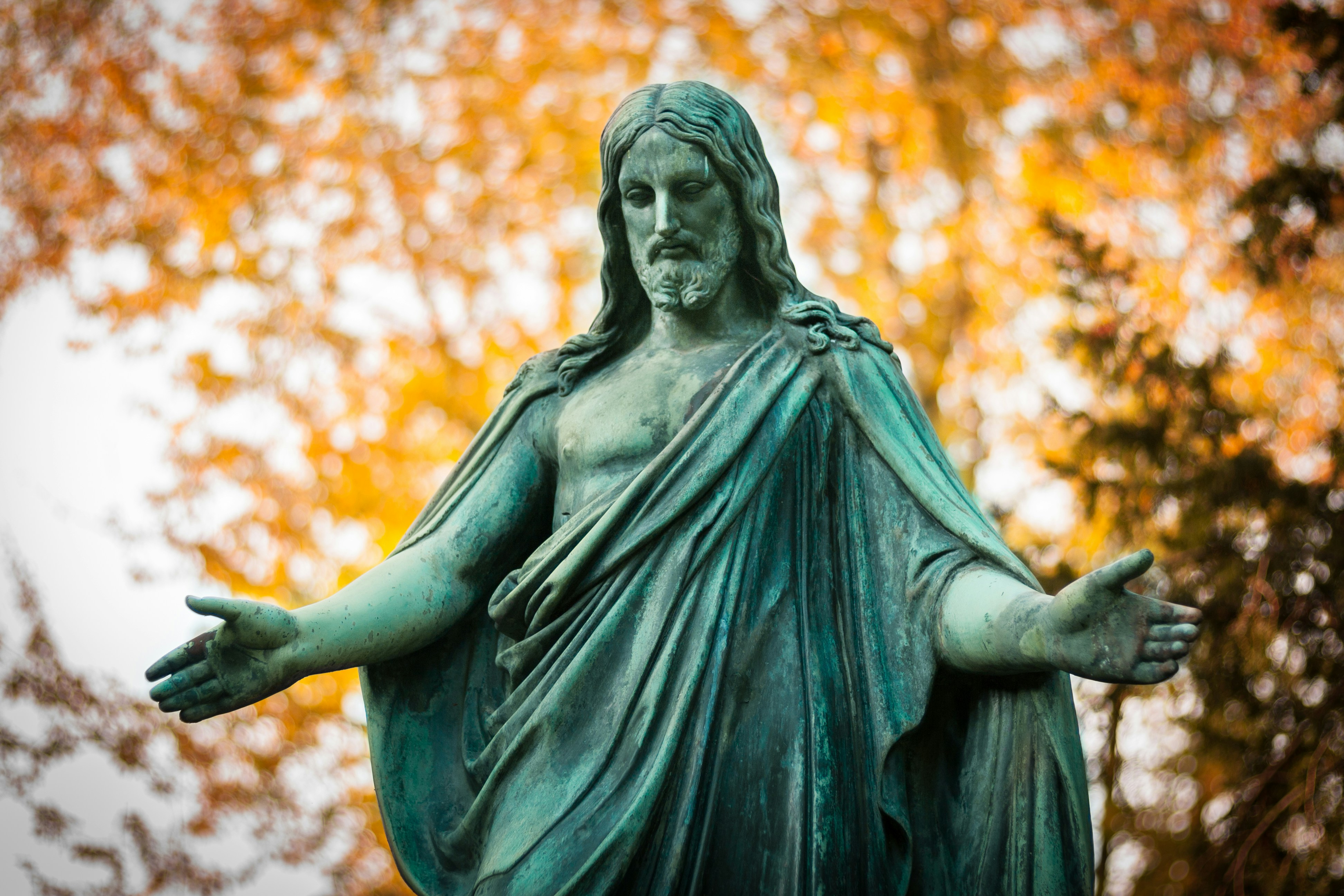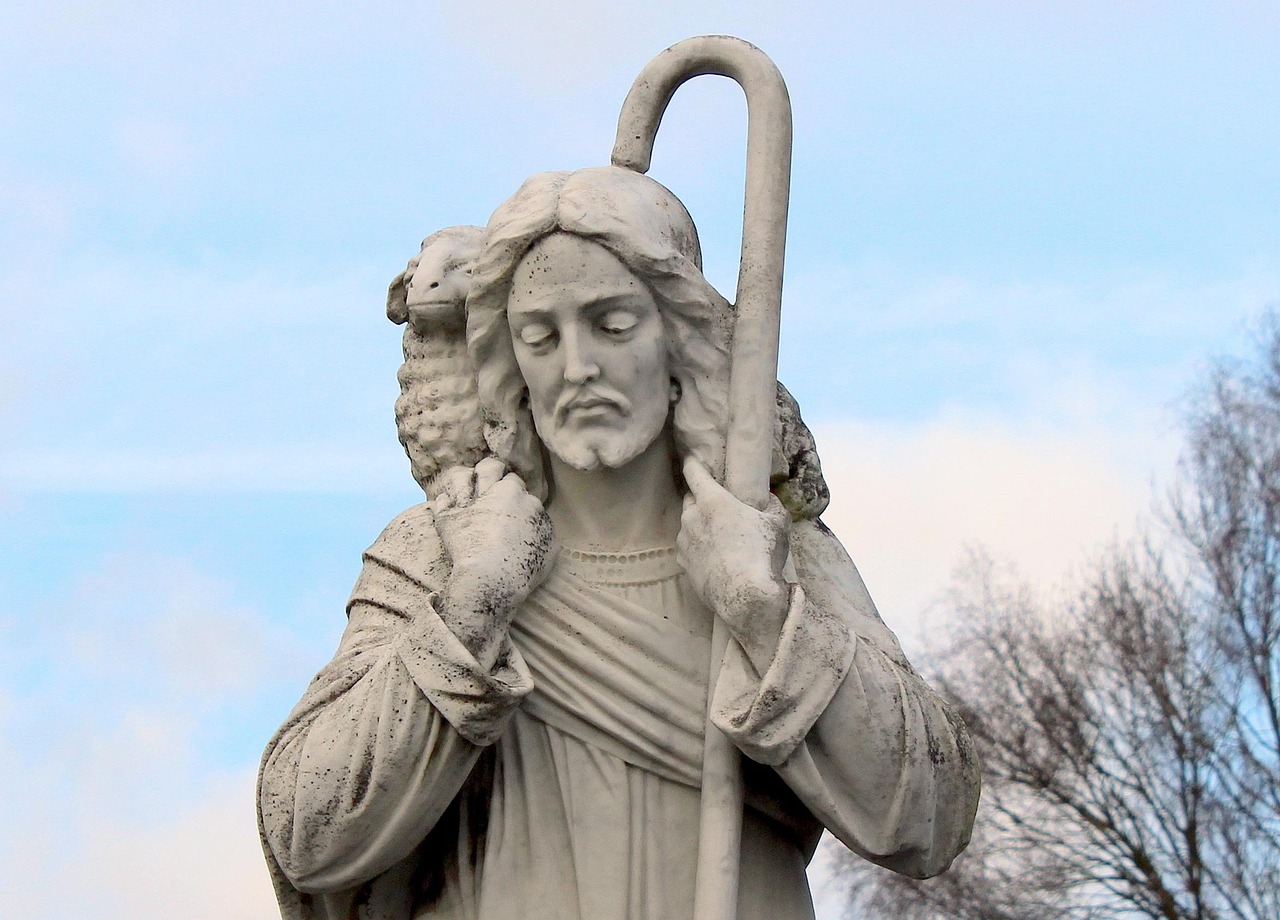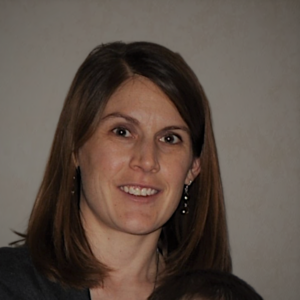Mary Magdalene’s love for the Lord is so deep that she follows him everywhere, even to the Cross and the tomb. After the burial, on the day after the Sabbath, while the Apostles are grieving and hiding for fear of being arrested next, Mary is heading out to the tomb before dawn. What did she hope to find there? Jesus was dead, anointed and wrapped in a shroud and buried, and the tomb had been closed and sealed.
Whatever she is hoping to find, she is surprised to find something else entirely. The stone is unsealed and rolled away. The body of the One she loves is not there! She runs to tell Peter and John and then returns to the tomb to weep outside, wondering and waiting. For what? Perhaps to confirm what she has already confirmed, she looks again into the tomb and is surprised anew. There are two angels sitting there where the Body had been, and they ask, “Why are you weeping?” Mary states simply that “they” have taken the body, and she does not know where they have taken it.
She turns around and is surprised again, seeing someone else in the garden. She thinks it is a gardener, and he asks the same question as the angels: “Why are you weeping?” No doubt hoping he may have some information about what happened, she asks him to tell her where he is.
Then Mary is surprised again, when she hears her name spoken, and she recognizes that this “gardener” is actually the Lord! How could she have failed to recognize the One she loves?! Because she is looking for a dead body; she could not yet know that Jesus is risen, alive, glorified! And when she does recognize Him, she wants Him to remain right there with her, so that her heart can be satisfied.
But Jesus tells her she must not hold on to Him, because He must first ascend to the Father. He has more work to do (over the next 40 days) in order for His Kingdom to be well-established in this world so that the work of salvation can continue. He must first give His Apostles authority and firmly establish the Church to conserve and hand on the Gospel and the Sacraments. He must then return to the Father so that they can send the Holy Spirit to safeguard and enliven the Church until the end of time, to transform the whole world.
What about us? What are we looking for when we seek Jesus? When we are looking in the wrong place, expecting the wrong thing, even demanding that He respond in a certain way, we (like Mary) may find ourselves distraught and weeping. But when we are open to His presence in whatever way He wills to reveal Himself, our seeking will always be rewarded, because we will receive Him as He is and receive what He is giving us right here, right now.
El amor de María Magdalena por el Señor es tan profundo que lo sigue a todas partes, incluso a la cruz y al sepulcro. Después del entierro, al día siguiente del sábado, mientras los apóstoles lloran y se esconden por miedo a ser arrestados, María se dirige al sepulcro antes del amanecer. ¿Qué esperaba encontrar allí? Jesús estaba muerto, ungido, envuelto en un sudario y enterrado, y el sepulcro había sido cerrado y sellado.
No sabemos lo que esperaba encontrar, pero se sorprende al encontrar algo completamente distinto. La piedra está abierta y removida. ¡El cuerpo del que ama no está allí! Corre a decírselo a Pedro y a Juan y luego regresa al sepulcro para llorar afuera, preguntándose y esperando. ¿Por qué? Tal vez para confirmar lo que ya había confirmado, mira nuevamente dentro del sepulcro y se sorprende nuevamente. Hay dos ángeles sentados allí donde había estado el cuerpo, y le preguntan: “¿Por qué estás llorando?” María simplemente dice que se han llevado el cuerpo, y que ella no sabe a dónde lo han llevado.
Se da la vuelta y se sorprende de nuevo al ver a otra persona en el jardín. Piensa que es un jardinero, y le hace la misma pregunta que los ángeles: “¿Por qué estás llorando?”. Seguramente esperando que él pueda tener alguna información sobre lo que sucedió, le pide que le diga dónde está.
Entonces María se sorprende de nuevo, cuando oye que pronuncian su nombre, y reconoce que ese “jardinero” es en realidad el Señor. ¿Cómo pudo no reconocer a Aquel a quien ama? Porque está buscando un muerto; ¡todavía no puede saber que Jesús ha resucitado, está vivo y glorificado! Y cuando lo reconoce, quiere que permanezca allí con ella, para que su corazón pueda estar satisfecho.
Pero Jesús le dice que no debe aferrarse a Él, porque primero debe ascender al Padre. Tiene más trabajo por hacer (en los próximos 40 días) para que Su Reino esté bien establecido en este mundo para que la obra de salvación pueda continuar. Primero debe dar autoridad a Sus Apóstoles y establecer firmemente la Iglesia para conservar y transmitir el Evangelio y los Sacramentos. Luego debe regresar al Padre para que puedan enviar al Espíritu Santo para salvaguardar y animar a la Iglesia hasta el fin de los tiempos, para transformar al mundo entero.
¿Y nosotros? ¿Qué buscamos cuando buscamos a Jesús? Cuando buscamos en el lugar equivocado, esperando lo equivocado, incluso exigiendo que Él responda de cierta manera, nosotros (como María) podemos encontrarnos angustiados y llorando. Pero cuando estamos abiertos a Su presencia en cualquier forma en que Él quiera revelarse, nuestra búsqueda siempre será recompensada, porque lo recibiremos como Él es y recibiremos lo que Él nos está dando aquí y ahora.
 Kathryn Mulderink, MA, is married to Robert, Station Manager for Holy Family Radio. Together they have seven children (including Father Rob), and eleven grandchildren. She is President of the local community of Secular Discalced Carmelites and has published five books and many articles. Over the last 30 years, she has worked as a teacher, headmistress, catechist, Pastoral Associate, and DRE, and as a writer and voice talent for Catholic Radio. Currently, she serves the Church by writing and speaking, and by collaborating with various parishes and to lead others to encounter Christ and engage their faith. Her website is www.KathrynTherese.com
Kathryn Mulderink, MA, is married to Robert, Station Manager for Holy Family Radio. Together they have seven children (including Father Rob), and eleven grandchildren. She is President of the local community of Secular Discalced Carmelites and has published five books and many articles. Over the last 30 years, she has worked as a teacher, headmistress, catechist, Pastoral Associate, and DRE, and as a writer and voice talent for Catholic Radio. Currently, she serves the Church by writing and speaking, and by collaborating with various parishes and to lead others to encounter Christ and engage their faith. Her website is www.KathrynTherese.com
Feature Image Credit: Bruno van der Kraan, unsplash.com/photos/sun-rays-inside-cave-v2HgNzRDfII
The views and opinions expressed in the Inspiration Daily blog are solely those of the original authors and contributors. These views and opinions do not necessarily represent those of Diocesan, the Diocesan staff, or other contributors to this blog.




 Kate Taliaferro is an Air Force wife and mother. She is blessed to be able to homeschool, bake bread and fold endless piles of laundry. When not planning a school day, writing a blog post or cooking pasta, Kate can be found curled up with a book or working with some kind of fiber craft. Kate blogs at
Kate Taliaferro is an Air Force wife and mother. She is blessed to be able to homeschool, bake bread and fold endless piles of laundry. When not planning a school day, writing a blog post or cooking pasta, Kate can be found curled up with a book or working with some kind of fiber craft. Kate blogs at 
 Mike Karpus is a regular guy. He grew up in Michigan’s Upper Peninsula, graduated from Michigan State University and works as an editor. He is married to a Catholic school principal, raised two daughters who became Catholic school teachers at points in their careers, and now relishes his two grandchildren, including the older one who is fascinated with learning about his faith. He also has served on a Catholic school board, a pastoral council and a parish stewardship committee. He currently is a lector at Mass, a Knight of Columbus, Adult Faith Formation Committee member and a board member of the local Habitat for Humanity organization. But mostly he’s a regular guy.
Mike Karpus is a regular guy. He grew up in Michigan’s Upper Peninsula, graduated from Michigan State University and works as an editor. He is married to a Catholic school principal, raised two daughters who became Catholic school teachers at points in their careers, and now relishes his two grandchildren, including the older one who is fascinated with learning about his faith. He also has served on a Catholic school board, a pastoral council and a parish stewardship committee. He currently is a lector at Mass, a Knight of Columbus, Adult Faith Formation Committee member and a board member of the local Habitat for Humanity organization. But mostly he’s a regular guy.
 Deanna G. Bartalini, M.Ed.; M.P.A., is a certified spiritual director, writer, speaker and content creator. The
Deanna G. Bartalini, M.Ed.; M.P.A., is a certified spiritual director, writer, speaker and content creator. The 


 Dr. Alexis Dallara-Marsh is a board-certified neurologist who practices in Bergen County, NJ. She is a wife to her best friend, Akeem, and a mother of four little ones on Earth and two others in heaven above.
Dr. Alexis Dallara-Marsh is a board-certified neurologist who practices in Bergen County, NJ. She is a wife to her best friend, Akeem, and a mother of four little ones on Earth and two others in heaven above.

 Lily is a Michigan native and cradle Catholic who has spent most of her life exploring her own reasons to embrace her faith fully. She attended Franciscan University of Steubenville, where she discovered the beauty of her personal relationship with Christ and the Church. After college, she worked in Montessori Education for three years and recently transitioned to nannying. She was recently married and spends most of her time reading, and enjoying her dog and family!
Lily is a Michigan native and cradle Catholic who has spent most of her life exploring her own reasons to embrace her faith fully. She attended Franciscan University of Steubenville, where she discovered the beauty of her personal relationship with Christ and the Church. After college, she worked in Montessori Education for three years and recently transitioned to nannying. She was recently married and spends most of her time reading, and enjoying her dog and family!
 Kimberly Andrich writes from the perspective of having a hidden, chronic illness and experiencing a deep, continuous conversion through being yoked to Jesus in the day-to-day trials and joys of life. She is a wife, mother of 5, and daughter of the King. Kimberly also writes for
Kimberly Andrich writes from the perspective of having a hidden, chronic illness and experiencing a deep, continuous conversion through being yoked to Jesus in the day-to-day trials and joys of life. She is a wife, mother of 5, and daughter of the King. Kimberly also writes for 